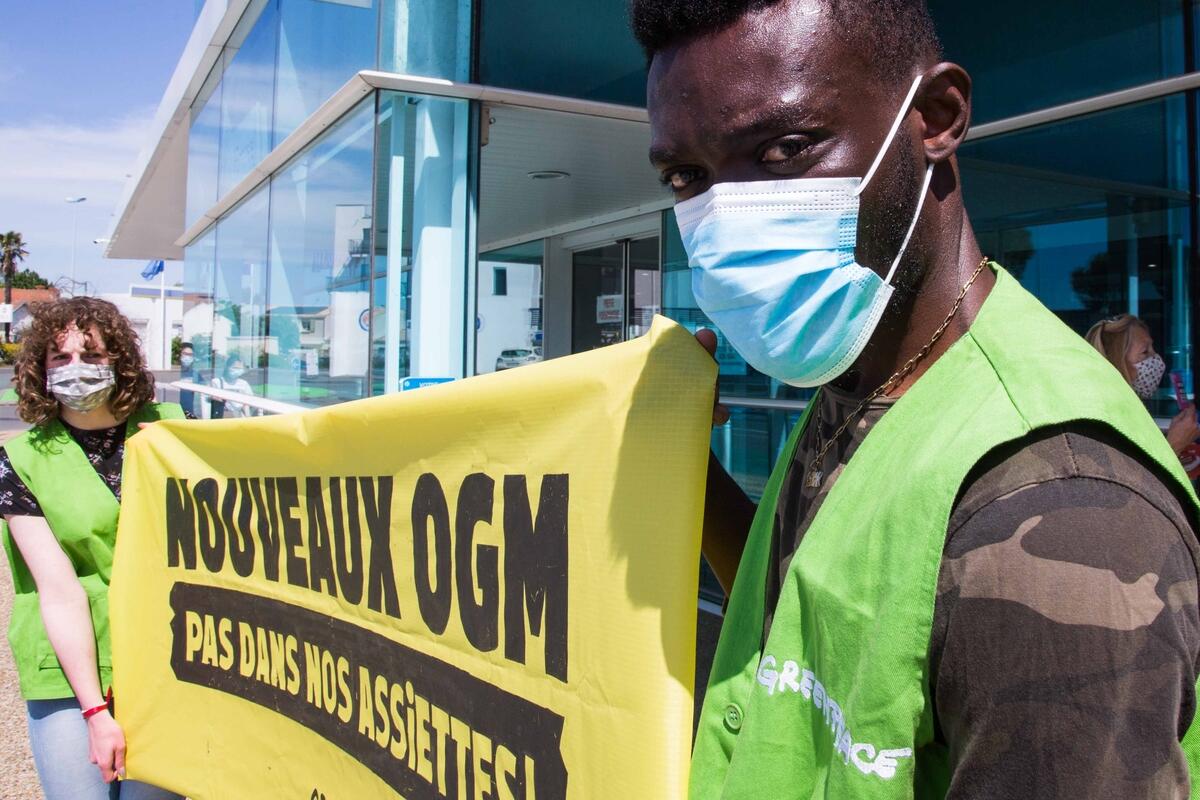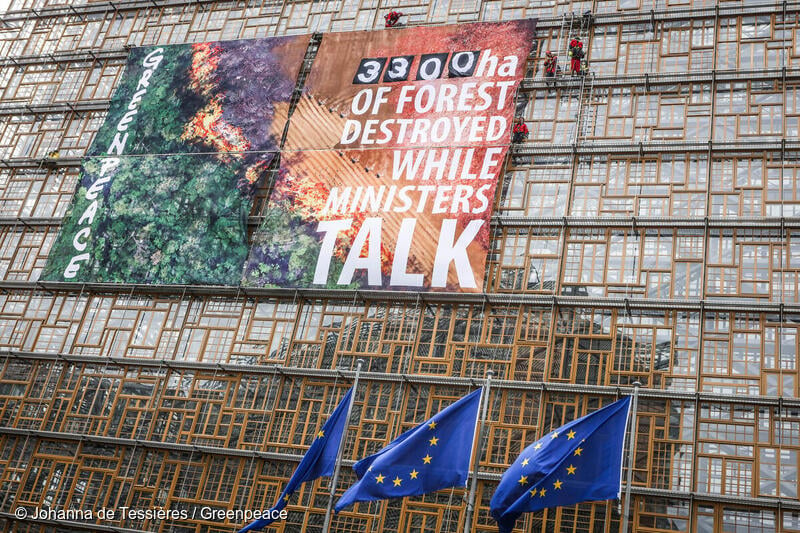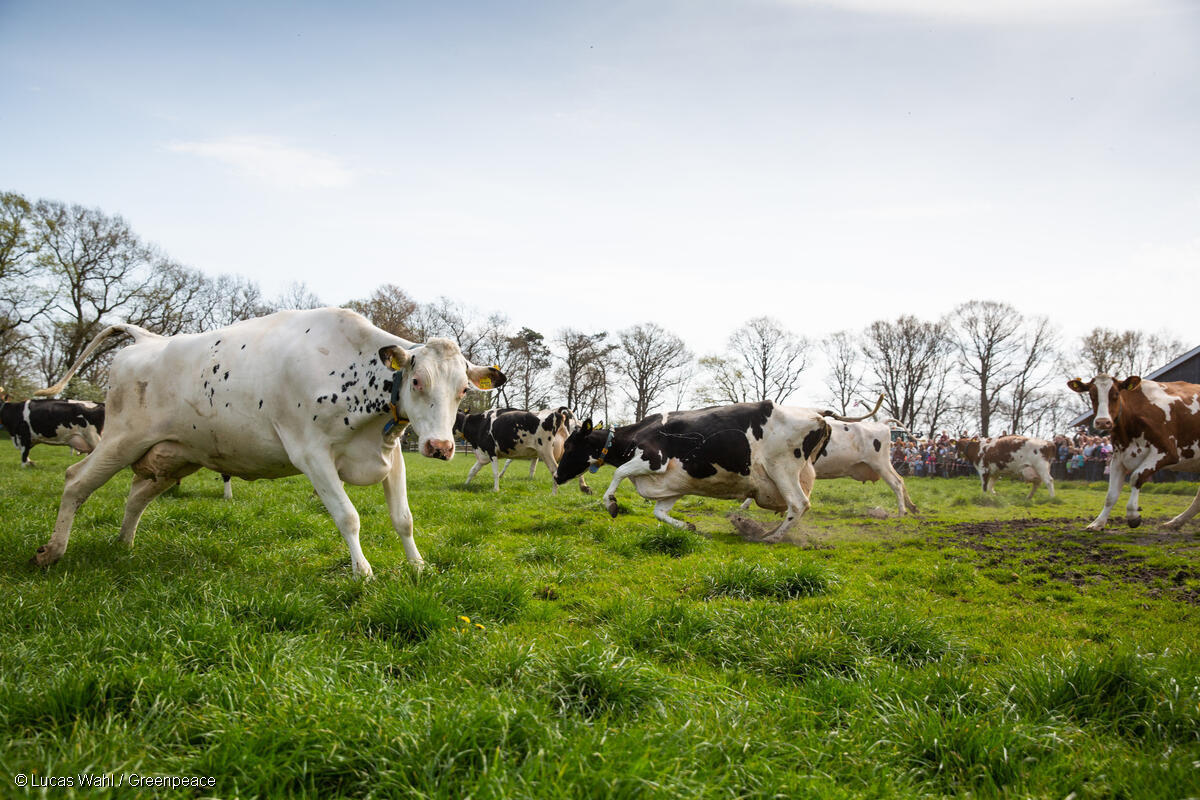Greenpeace EU media briefing – December 2023
The Spanish Presidency of the EU is pressing ahead with a European Commission plan to deregulate a new brand of genetically modified organisms (GMOs). EU agriculture ministers meeting on Sunday 10 December and Monday 11 December will be asked for their views on the plan, with the aim of achieving a common position for governments, ahead of negotiations with the European Parliament.

The Commission plan would scrap most safety checks for a new brand of genetically modified plants produced with so-called new genomic techniques (NGTs). It creates two categories of new GMO plants: GMOs under category 1 would be considered equivalent to conventional plants and fully deregulated, while GMOs under category 2 would only need to comply with watered down safety checks. According to the German Federal Nature Protection Agency, 94% of submitted applications for new GMOs would fall under category 1.
Greenpeace GMO campaigner Eva Corral said: “European countries must reject the deregulation of new GMOs and continue talks to ensure that new GMOs remain covered by the provisions of current GMO legislation, this is, having safety checks, traceability and labelling. People have the right to know what is on their plate, and farmers have the right to seeds, without being held hostage by the agribusiness because of patents. Under the current proposal, it will become increasingly difficult for governments and farmers to ensure sustainable, healthy, fair and resilient food systems.”
GMO deregulation under fire
The Commission’s plan has been heavily criticised by environmental groups and scientists, who highlight safety concerns. In October, the European Network of Scientists for Social and Environmental Responsibility (ENSSER) warned that the Commission’s criteria used to determine equivalence to conventional plants is not based on science and is not a guarantee that new GMOs are safe. Another group of scientists said in a statement on 5 December that if the whole proposal is not rejected, category 1 must at least be deleted. In the same letter, they also indicate that current GMO rules ensure adequate testing for new GMOs.
The German Federal Nature Protection Agency also warned that both intentional and unintentional mutations inherent to NGTs carry risks, and that only a case-by-case assessment, as prescribed under current legislation, can ensure high safety standards.
A review of the data shows that the cultivation of plants obtained with NGTs, notably camelina and oilseed rape, may put pollinators, such as bees, at risk.
An open letter published in November and signed by more than 70 academics also called for the plan to be rejected and expressed concern about the rushed procedure to adopt it. They argue that the (de)regulation proposal does not have the support of EU citizens and could further undermine their trust in European politics. A 2021 poll and a 2023 petition show that consumers want GMOs and new GMOs labelled and regulated.
Corporate control and nature at risk
The Commission plan is also highly controversial on several other aspects. It removes traceability and labelling requirements (for most new GMOs, under category 1), which ensure consumers can choose the products they buy and consume. Labelling and traceability also allow the identification of GMOs throughout the supply chain, for breeders, farmers, processors and retailers. Both are essential for the organic and for GMO-free conventional farming sectors and also make it possible to intervene if health or environmental problems occur.
Another problem related to the Commission plan is the question of patents. The plan could allow further concentration in the control of seeds, the basis of our food system, by a handful of large companies.
Supporters of the proposal argue that deregulation is needed to unleash innovation, but the US example shows that GMO deregulation does not speed up market access for new GMOs. Another argument used to justify the need for deregulation is that new GMOs will help deliver on sustainability, including adaptation to climate change. However, so far, the few new GMOs that have reached the market have failed to deliver on this promise. In fact, many new GM plants in the pipeline are not engineered for sustainability purposes but to enhance their market value for the agribusiness, for example with an improved appearance.
Next steps
The European Parliament’s Agriculture and Rural Development Committee will vote on the Commission’s plan on 11 December. The Committee on Environment, Public Health and Food Safety will likely vote on the 11 January, with the vote in plenary scheduled for the week of 15 January.
Currently, 18 EU countries and regions have chosen to be free of GMOs. The new Commission plan removes the right of governments to do so and to protect their agriculture and environment from the potential impact of new GMOs.
Contacts:
Eva Corral, Greenpeace EU GMO campaigner: +32 479 60 12 89, [email protected]
Greenpeace EU press desk: +32 (0)2 274 1911, [email protected]
For breaking news and comment on EU affairs: www.twitter.com/GreenpeaceEU
Greenpeace is an independent global campaigning network that acts to change attitudes and behaviour, to protect and conserve the environment and to promote peace. We do not accept donations from governments, the EU, businesses or political parties. Greenpeace has over three million supporters, and 26 independent national and regional organisations with offices in more than 55 countries.
EU Transparency Register: 9832909575-41



